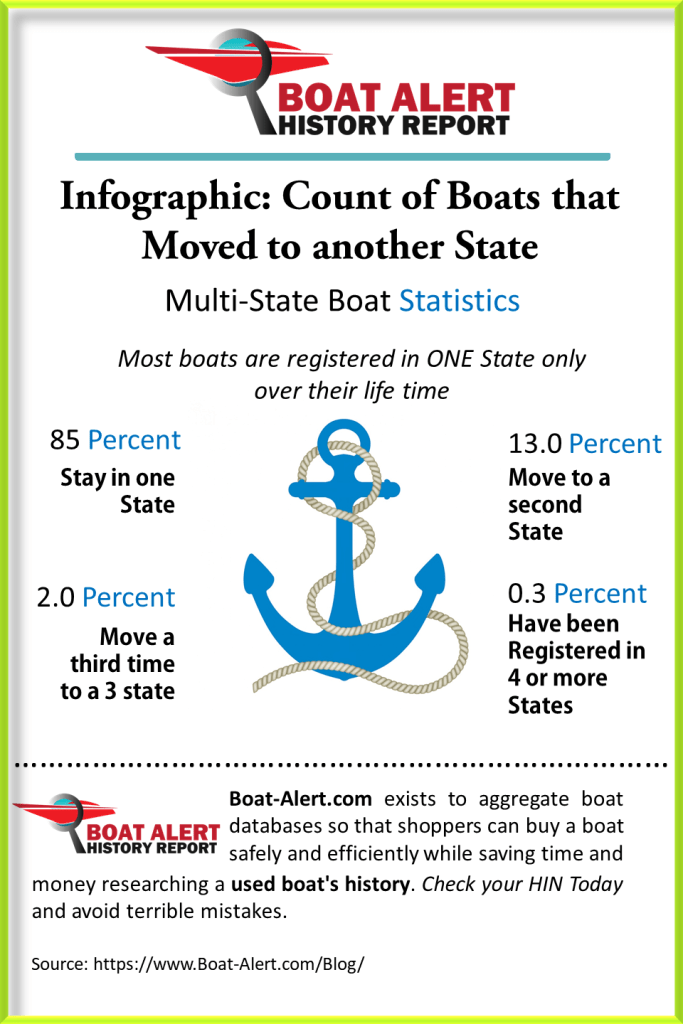How Many Boats Move Out of State | Traveling boat Statistics in the USA

Number of boats the sold to another State
While the majority of boats are registered in just one State for their entire life time, we wanted to know how many end up moving to another US State over their life time when the owner moves or sells their boat out-of-state, for example.
This happens way more than you think and sometimes it happens because unscrupulous sellers want to title wash that boat.
Boat Registration Statistics
We gathered Boat Registration data in the USA to look for answers to this question. You can see raw data on the Volume of Recreational boating vessels in the U.S by state in our other article but today we look into how many boats changed their home state and how many times they did that over the span of 10 years.
A boat cannot be registered in two states simultaneously. However, you don’t need to worry about that because most states allow vessels registered in other states to operate for 60 days before having to register with that state. But you can’t keep the boat in other states for an extended period.
How many boats are registered in just a single US State?
We found that 85% of recreational boats are only ever registered in one US State.
How many boats are registered in two (2) US States?
We found that 13% of recreational boats are only ever registered in two US States over time.
How many boats get registered in three (3) US States?
We found that 2% of recreational boats are only ever registered in three US States throughout their life.
How many boats are registered in 4 or more US States?
We found that 0.3% of recreational boats are registered in 4 or more US States.
Table showing count of states that boats are registered in:
| Count of US States Reg. for a Vessel | Percentage of Recreational Boats |
| 1 | 85% |
| 2 | 13% |
| 3 | 2% |
| 4+ | 0.3% |
Other commonly asked questions:
Can you register a boat in another state (other than where you live)?
A boat can be registered in other states other than where you live, and there is no rule like a boat should only be registered in the state where you live. But you do need to tell an address within that state where it will be kept. So, it’s FINE to register a boat in other states where you won’t live.
Boating in other states isn’t a problem; you can do that for 60 days. But two things can be a problem for you, and those are:
- You need to complete a boating safety course approved by NASBLA to operate a boat in other states OR a taking a boating license after completing a boating safety course approved by NASBLA if absolutely FINE (Boating license is recommended).
- If you trailer your boat to other states, you need to check that state’s trailer requirements because some states require a trailer to be titled and registered.
- Fishing licenses.
- Here’s what you need to know about ‘reciprocity‘.

Warning: if a boat has been moved from one state to another and one of these states is not a titling state, then there is a high risk of “title washing“.
Read Related Articles:
- North Dakota Boat Registration
- Best Marine Surveyors in Fort Myers
- You want to avoid these Common Mishaps On Boat Trips
- How to Register a Boat in British Columbia | Vessel Licensing and Registration in British Columbia
- Best Marine Surveyors in Vancouver
Categories: To learn more about Boat-Alert.com History Reports for used boats and boat accident report visit: www.Boat-Alert.com